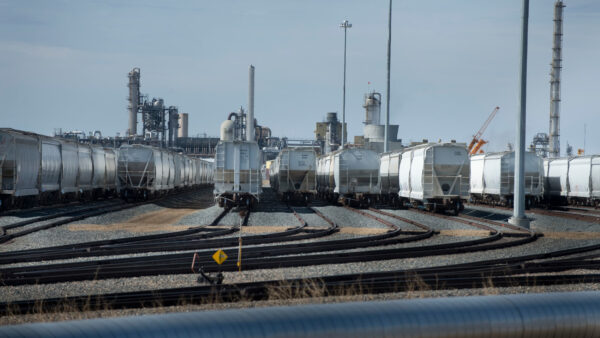UK MPs pulled no punches today in blaming Carillion’s top executives for its failure, accusing them of “recklessness, hubris and greed”, and of presiding over a “rotten corporate culture” that led to a spectacular and damaging fall.
Richard Adam was singled out as the “architect of Carillion’s aggressive accounting policies”.
Finance director for nearly 10 years, he sold all his shares after leaving the company in December 2016.
MPs said these were “the actions of a man who knew where the company was heading”.
Same old story. Same old greed. A board of directors too busy stuffing their mouths with gold to show any concern for the welfare of their workforce or their pensioners– Frank Field MP
But former chairman Philip Green, former chief executives Richard Howson and Keith Cochrane, and a second former finance director, Zafar Khan, were also castigated.
They colluded in an enterprise to boost dividend pay-outs every year and protect generous executive bonuses, even as the company’s debt and pensions deficit soared and suppliers went unpaid, MPs said in the final report of their inquiry, released today.
“Same old story. Same old greed. A board of directors too busy stuffing their mouths with gold to show any concern for the welfare of their workforce or their pensioners,” said Frank Field MP, chair of the Work and Pensions Committee.
“They rightly face investigation of their fitness to run a company again. This is a disgraceful example of how much of our capitalism is allowed to operate, waved through by a cosy club of auditors, conflicted at every turn.”
He added: “British industry is too important to be left in the hands of the likes of the shysters at the top of Carillion.”
Field’s comments accompanied the launch of the final report of the inquiry by the joint Work and Pensions-Business, Energy, and Industrial Strategy (BEIS) committees into Carillion’s collapse.
One good woman
Only one former director was spared the tongue-lashing.
Emma Mercer, who took over as chief financial officer four months before Carillion’s apocalyptic, £845m provision in July 2017, was “the only Carillion director to emerge from the collapse with any credit”, the report said.
Brought in from the Canadian business in March that year, she quickly spotted an anomaly in the way the company was classifying receivable balances on construction contracts, calling it “sloppy accounting”.
The board shied away from a full independent review, and instead asked the company’s auditor, KPMG, to review the matter. KPMG supported the board’s conclusion that although Carillion had misclassified assets, it had not misstated revenue.
That review triggered the wider review that led to the £845m provison in July 2017.
“Delusional”
But MPs opened both barrels on the others.
Richard Adam was finance director from 2007 to December 2016, when he resigned with a £1.1m pay package. In their inquiry MPs heard that he “exercised tight control over the entire finance function, had extensive influence through the Group”.
This led MPs to conclude that he was “the architect of Carillion’s aggressive accounting policies”, which included consistently overestimating the profitability of its projects, counting as revenue uncertain cash that clients had not signed off, and hiding its mounting debt to suppliers.
His departure, they observed, was “perfectly timed”, because he went on to sell all his Carillion shares, finishing in May 2017, netting £776,000 – “just before the wheels began very publicly coming off”.
“These were the actions of a man who knew exactly where the company was heading once it was no longer propped up by his accounting tricks,” the report said.
Philip Green, chairman since 2014, was “an unquestioning optimist, an outlook he maintained in a delusional, upbeat assessment of the company’s prospects only days before it began its public decline,” MPs said.
Richard Howson, who was chief executive from 2012 until he was sacked after the July 2017 provision announcement, displayed a “misguided self-assurance” that MPs said “obscured an apparent lack of interest in, or understanding of, essential detail, or any recognition that Carillion was a business crying out for challenge and reform”.
Keith Cochrane, a non-executive director who stepped in as interim chief executive when Howson left, “quickly succumbed to the dysfunctionality prevalent on the board”, MPs said, adding that he ignored concerns from shareholders about the company’s net debt and its pensions deficit, and “exhibited little challenge or insight”.
In post as finance director for just nine months before Emma Mercer’s arrival, Zafar Khan is criticised for not challenging the status quo, and for signing off the 2016 accounts, which gave an “extraordinarily optimistic view” of the company’s health.
Infuriated
During their inquiry, MPs were infuriated by what they saw as directors’ apparent unwillingness to accept responsibility for Carillion’s collapse, and their concluding report is a measure of revenge for that.
“Rather than a failure of management, the collapse of Carillion was, to them, the fault of their advisers, the Bank of England, the foreign exchange markets, Brexit, the snap 2017 General Election, Carillion’s investors, Carillion’s suppliers, the entire UK construction industry, Middle Eastern business culture, the construction market of Canada, and professional designers of concrete beams,” they wrote.
They concluded: “Once the business had completely collapsed, Carillion’s directors sought to blame everyone but themselves for the destruction they caused. Their expressions of regret offer no comfort for employees, former employees and suppliers who have suffered because of their failure of leadership.”
Image: From left, former Carillion executives Richard Adam, Richard Howson and Philip Green, giving evidence to the joint Work and Pensions-Business, Energy, and Industrial Strategy committee into Carillion’s collapse, February 2018 (Parliament TV)
Comments
Comments are closed.











Have these people gotten away with this or can/will they be made to payback through some professional negligence or duty of care ???. wow.
They should be behind bars where they can do no more harm